Israel-Hamas War: What happened on day 108?
Three Paratrooper officers killed in ambush • Hostage deal possible, but no ‘real’ Hamas proposal, Netanyahu claims •
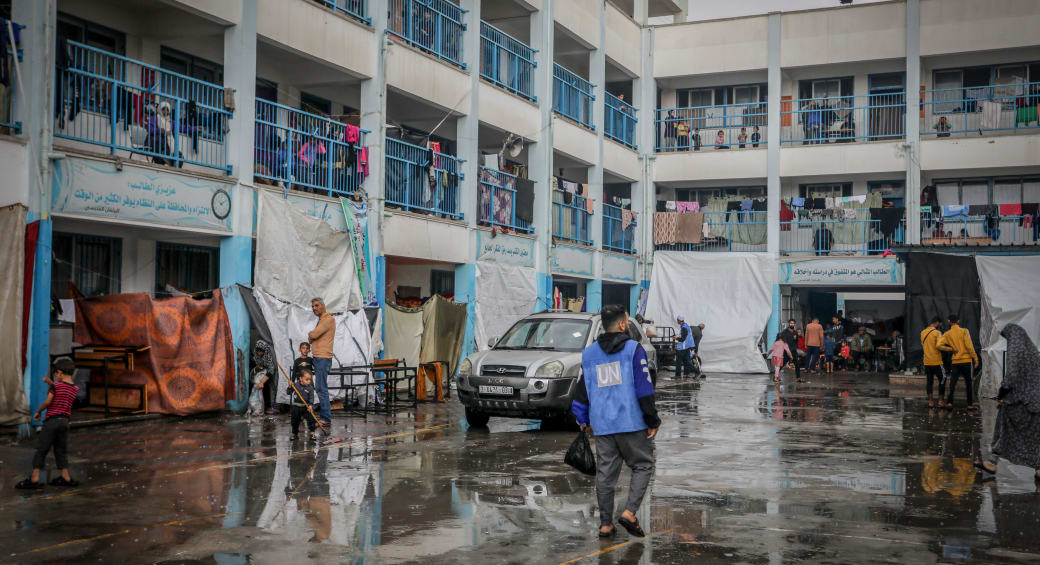

Hamas causes buildings collapse - 21 IDF soldiers dead, several injured
This news comes after three soldiers were killed in battle the day before.

Hamas forces on Monday fired a rocket propelled grenade on multiple adjacent structures which, along with landmines which the IDF forces had collected and brought into the buildings, caused a total collapse, which in turn killed 21 soldiers and injured several others.
The incident occurred around 4:00 p.m. in al-Muasi in central Gaza.
In addition, a separate rocket propelled grenade was fired on an IDF tank which killed two IDF soldiers and injured two others.
It was unclear if the soldiers had violated procedures by bringing the landmines into the structures with them and also unclear how much the collapse of the building was caused by the RPG versus the secondary landmines explosions.
The IDF forces who were harmed were mostly reservists assigned to clear certain areas of dangerous items, such as mines.
Rescue activities went on for hours with the brigade commander having been on site from the start of the incident.
It was unclear what happened to the Hamas attackers.
The IDF released the names of 10 soldiers of the 21 that were killed.
Maj.-Gen. (res.) Matan Lazar, 32, from Haifa, a soldier from the IDF's 6261 Battalion, 261's Brigade.
Maj.-Gen. (res.) Hadar Kapeluk, 23, from Moshav Mevo Beitar, and was a Class Commander in the IDF's 8208 Battalion, 261st Brigade.
Sgt.-Maj. (res.) Sergey Gontmaher, 37, from Ramat Gan, who was a soldier in the IDF's 8208 Battalion, 261st Brigade.
Maj. (res.) Elkana Yehuda Sfez, 25, from Kiryat Arba, was a soldier in the 8208 Battalion, 261st Brigade.
St.-Sgt. (res.) Yoval Lopez, 27, from the settlement Alon Shvut in the West Bank, a soldier in the 9206 Battalion, 205th Brigade.
Maj. (res.) Yoav Levi, 29, from the city Yehud-Monoson in central Israel, who was a soldier in Battalion 8208, 261st Brigade.
Maj. (res.) Nicholas Berger, 22, from Jerusalem, who was a soldier in the 8208 Battalion, 261st Brigade.
Maj. (res.) Cydrick Garin, 23, from Tel Aviv-Yafo, who was a soldier in the 8208 Battalion, 261st Brigade.
St.-Sgt. (res.) Rafael Elias Mosheyoff, 33, from the town Pardes Hanna-Karkur near Haifa, who was a soldier in the 6261 Battalion, 261st Brigade.
St.-Sgt. (res.) Barak Haim Ben Valid, 33, from Rishon Lezion, class commander in Battalion 6261, Brigade 261.
Go to the full article >>Legislation proposed on the representation of terrorists in court
There have been ongoing discussions involving senior police officials, legal advisors and prosecutors on how the perpetrators of the October 7 attack on the Gaza border will be brought to trial.
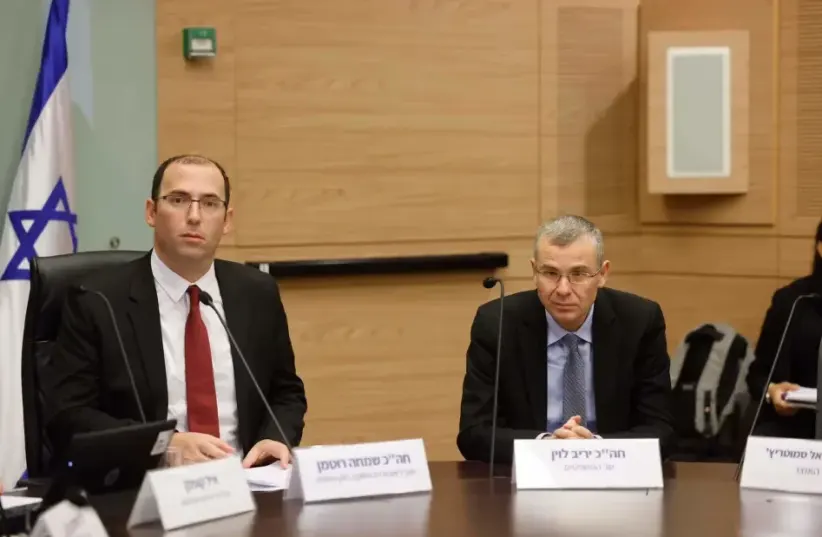
Although the Ministerial committee approved a bill on Sunday that would prevent terrorists from being represented by public defenders, the Minister of Justice stated that the bill would only be advanced with the consent of additional authorities, according to Kan News.
The Legal Advisor to the Government and the Public Defender’s Office had already opposed the proposal.
One of the reasons for the delay is that according to the Attorney General, the bill in its current form could create a false impression that it would prohibit any representation for terrorists in Court, not only public defenders.
The Attorney General argues that this could harm the international reputation and legitimacy of Israel’s legal system.
There have been ongoing discussions involving senior police officials, legal advisors and prosecutors on how the perpetrators of the October 7 attack on the Gaza border will be brought to trial. Police are already demanding to file collective indictments against the terrorists, according to Kan News.
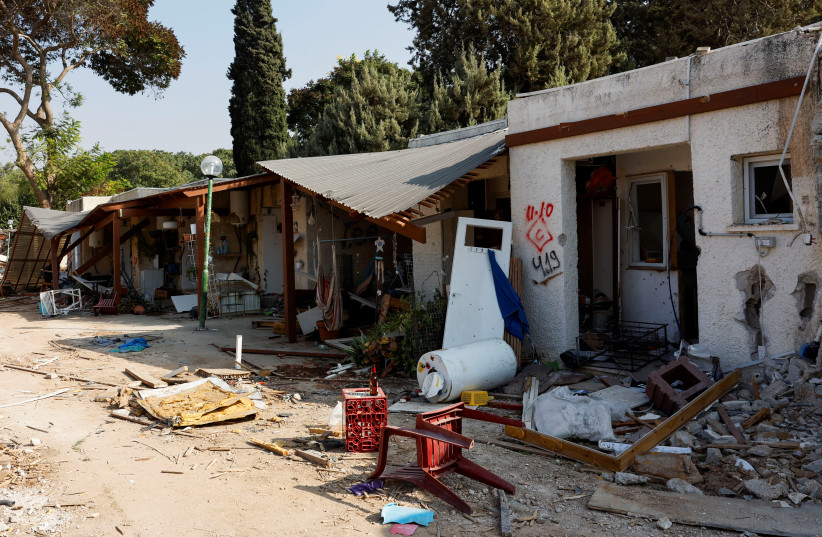
The main reason for a collective indictment is that there is a lack of specific evidence against the terrorists, including the absence of forensic evidence. There are almost no real-time pathological reports, and it is difficult to attribute specific murders to specific terrorists.
Additionally, according to initial reports, the charges against the terrorists will be categorized by regions—so each terrorist will face charges based on cities, kibbutzim, and the Nova music festival in Re'im, Kan News reveals.
Discussions surrounding prosecuting Hamas terrorists
Changes to the regulations regarding the arrest of suspects; defining terrorists as “unlawful combatants'; setting up special courts; indicting hundreds of detainees under the same charge; and examining the implications of imposing the death sentence are only some of the issues that are currently being discussed by the Israeli Justice Ministry as it tries to decide how Israel’s legal system will deal with the Hamas terrorists who perpetrated the October 7 atrocities, according to a report by Shomrim, the Center for Media and Democracy.
“These are discussions that happen once in many years – if at all,” one official from the justice system told Shomrim. These issues are extremely sensitive, and therefore the discussions are held in secrecy.
The Justice Ministry said that it is not responding to questions on the subject at this time, Shomrim reported.
These trials recall the Nuremberg Trials after the Holocaust and the desire for revenge, Prof. Amichai Cohen, an expert in the law of armed conflict at the Israel Democracy Institute and a member of the Faculty of Law at Ono Academic College, reflects. He told Shomrim, “Of course, we are instilled with the desire for revenge but we are a Western nation, so we will conduct a proper legal process, we will expose the crime to the world, we will put the terrorists on trial and maybe in the end it will be decided to execute them. But it will not be barbaric revenge.”
Go to the full article >>IDF unveils 'Be'eri' vehicle, built to withstand extreme elements of war
This all-terrain vehicle is expected to help soldiers execute evacuations safely, along with a slew of other military activities.
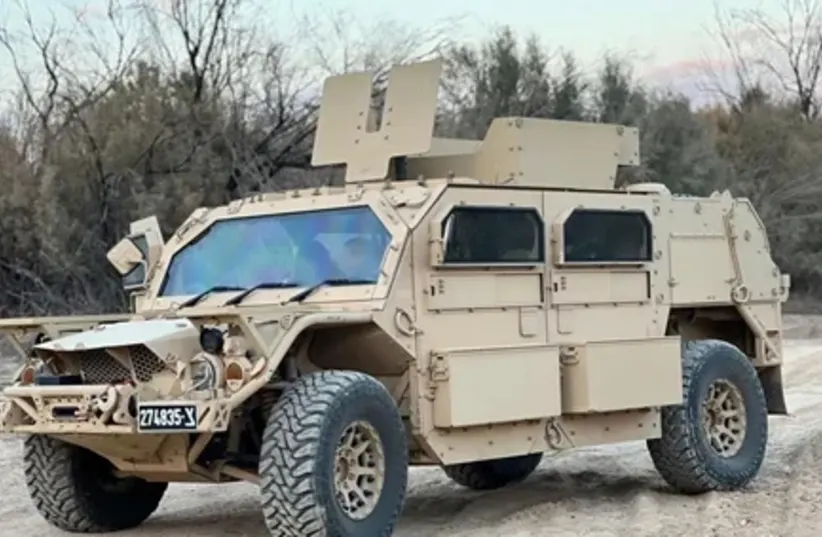
Mobility is a crucial aspect of any mission, especially during Israel's ground operation in the Gaza Strip. Now, a special, unique jeep, named Be'eri in honor of a kibbutz massacred on October 7, will help the IDF navigate the battlefield.
"It is different from any vehicle we have known to date in the IDF," declares Lt. N., inspector general in the BALNAM, the IDF's School of Operational Mobility. "it is very fast, versatile, operational and more protected."
The Be'eri can travel up to 130 kilometers (around 80 miles) per hour, weighing 5 tons. The IDF's 56 "Flyer" version of the vehicle has 72 available for use in military operations. The vehicle was "designed to withstand almost any off-road route, and provide maximum protection to the occupant."
This vehicle is one of multiple revealed by the IDF to help improve battlefield mobility at top speed. However, the Be'eri's main goal is clear. "Its vocation is to be an intervention vehicle, which can reach anywhere in the country and be a decisive reinforcement player," says Lieutenant N.
How will this vehicle help IDF ground operations in Gaza?
Hummers and standard Jeeps typically employ a model with the driver on one side near a window. However, this vehicle will have the driver in the middle seat. "When the driver's seat is located in the middle of the vehicle, the wheels have a much greater range of motion, and you can easily read the terrain," Lieutenant N explained. "From an operational point of view, it is possible to place two fighters with a machine gun on both sides of the driver, and this significantly improves the lethality on the battlefield."
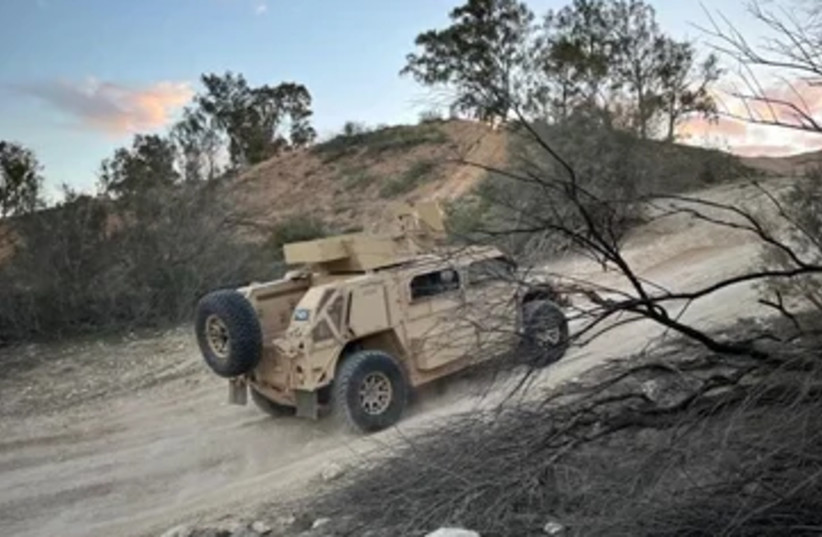
One of the most significant features of the Be'eri is how the vehicle will adapt on each mission. "Each wheel has an air shock absorber that can be emptied and filled. With the push of a button, I can raise and lower whichever wheel I want, and this allows me to go over side slopes in a much better way," explains Lieutenant N. "There is also adjustment for situations of evacuating and rescuing the injured, off-road driving, side slopes, as well as attack mode. This allows us to adapt quickly even under fire."
The vehicle is also expected to be safer than others, because of the windshield's ability to open. Should it catch fire, or another problem arises, the driver can quickly evacuate.
Go to the full article >>Breaking: Red alerts sound on the northern border

Red alerts sound in Shomera, on the northern border.
Go to the full article >>Netanyahu rejects two state solution ahead of EU meetings
He spoke as his public popularity remained low, with Channel 13 reporting that according to the latest poll, the Likud under his leadership would garner only 16 seats compared to its current 32.
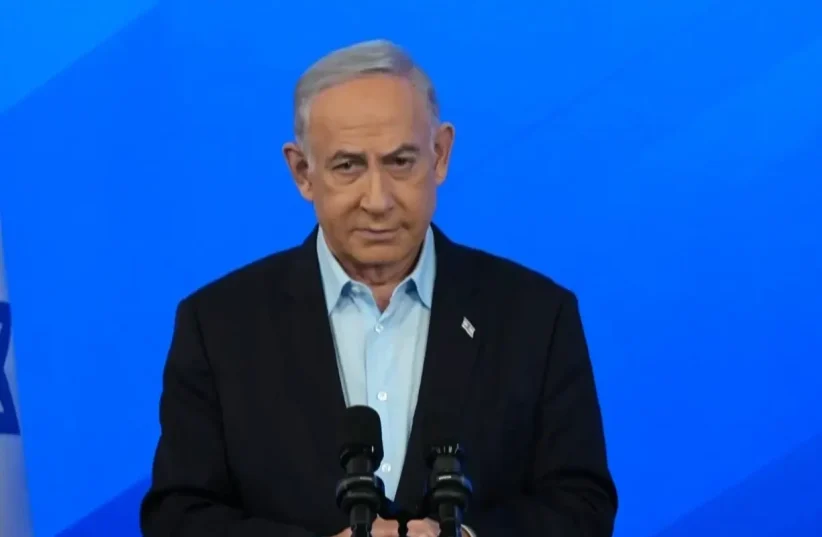
Prime Minister Benjamin Netanyahu boasted of thwarting Palestinian statehood, ahead of an unusual European Union set of meetings on Monday between the bloc’s foreign ministers and their Middle East counterparts, including Israel Katz.
“I will not compromise on full Israeli security control over all the territory west of the Jordan River,” Netanyahu said in a video message he issued to the Israeli public on Sunday night.
He stressed that his ability to stand firm against international and domestic pressure on this issue “is what has prevented – over the years – the establishment of a Palestinian state that would have constituted an existential danger to Israel.”
He spoke as his public popularity remained low, with Channel 13 reporting that according to the latest poll, the Likud under his leadership would garner only 16 seats compared to the 32 it earned in the 2022 elections.
Public statements against Palestinian statehood play well with his voter base domestically, but not with the international community which has increased calls for two-states in light of the Gaza war, particularly the high casualty count.
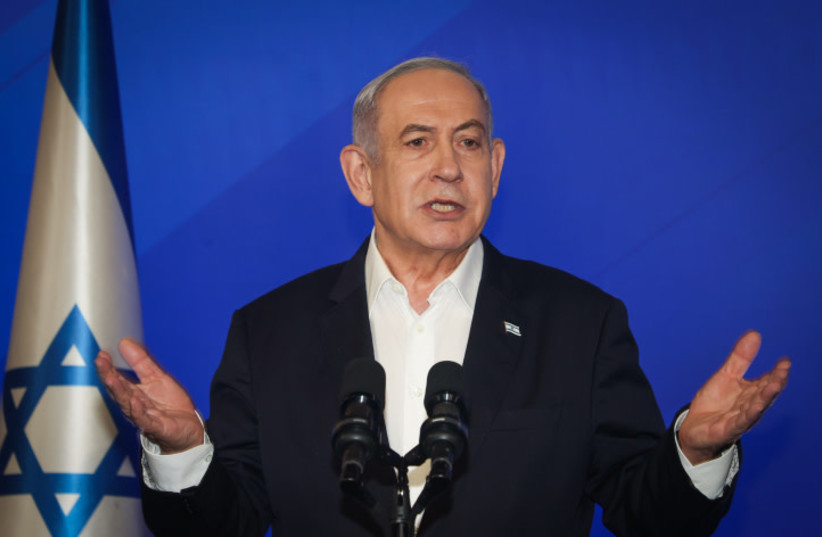
International pressure on Israel mounts against backdrop of war in Gaza
International pressure on Israel, however, has increased both in Washington and Brussels due to the Gaza war with the EU’s 27 foreign ministers set to meet with their fellow counterparts on Monday.
The following foreign ministers will be present: Israel Katz of Israel, Saudi Faisal bin Farhan Al Saud of Saudi Arabia, Ayman Safadi of Jordan, Sameh Shoukry of Egypt, and Riyad al-Maliki of the Palestinian Authority. The EU foreign ministers will also meet with Arab League Secretary-General Ahmed Aboul Gheit.
According to a report in the Financial Times, the EU foreign ministers are also likely to discuss the possibility of imposing consequences on Israel if Netanyahu continues to reject Palestinian statehood.
Before he departs for Brussels, Katz said he plans to promote Israel’s “diplomatic campaign to support the heroic IDF soldiers and defeat Hamas.” He added that he would work to mobilize the EU to press for the return of the hostages and to promote regional economic projects that would also serve to isolate Iran.
The meeting comes as the Biden administration renewed its efforts for a Saudi normalization deal – linked this time to Palestinian statehood. Moderate Arab countries have also warned that they won’t finance the reconstruction of Gaza without a path to two states.
In an interview with CNN’s Fareed Zakaria, Saudi prince Bin Farhan said that a “credible, irreversible process to a Palestinian state” was the only way to integrate Israel into the Middle East. “We are fully ready as Arab countries to engage in that conversation. I would hope that the Israelis would be as well.”
Go to the full article >>IDF closing in on Gaza hostages in Khan Yunis, Gallant tells families
Defense minister: Most sensitive locations for Hamas are getting us closer to the two goals of the war.

Defense Minister Yoav Gallant on Sunday told representatives of Israeli hostage families that there are growing signs that they are hotter on the heels of Hamas's top leadership and the hostages in Khan Yunis than they have been until now.
"Operations in Khan Yunis are at a high point, and there are early signs that are arriving at the most sensitive locations for Hamas are getting us closer to the two goals of the war," said Gallant.
The defense minister was referring to the goals of dismantling Hamas and returning the around 130 Israeli hostages.
He made the statement one day after the IDF revealed it had found cages in Khan Yunis where hostages had previously been held by Hamas.
'Mushroom clouds will continue to cover the skies of Gaza'
Earlier, Gallant visited the 100th Squadron of the Israeli Air Force at the Hatzor base and conducted a flight over the skies of Gaza, accompanied by the squadron commander, Lieutenant Colonel S.

Afterward, the defense minister held a conversation with the pilots, aircrew, and ground crews responsible for the aircraft armament.
Gallant expressed his appreciation to the air and ground teams and emphasized the importance of coordination between the Air Force and the forces operating in the Gaza Strip to achieve operational objectives.
"I observed the forces operating in the northern, central, and southern parts of the Gaza Strip," Gallant said. "I witnessed a real-time attack by the Air Force in the southern part of Gaza City.
"The accuracy, the quality of execution, and the perfect coordination with the forces are very impressive," Gallant continued. "We are operating with force in the Khan Yunis area, and it will expand. The mushroom clouds from the tanks, artillery, and Air Force planes will continue to cover the skies of Gaza until we achieve our goals, primarily the dismantling of Hamas and the return of the hostages to their homes."
Jerusalem Post Staff contributed to this report.
Go to the full article >>Qatar implies that Red Sea insecurity can only be fixed by Gaza ceasefire
"We need to address the central issue, which is Gaza, in order to get everything else defused," said the country's prime minister.

Addressing the Annual Meeting of the World Economic Forum in Davos, Qatar's Prime Minister, Sheikh Mohammed bin Abdulrahman Al Thani, said on Tuesday that the American and British attacks on the Houthis can only worsen the security situation in the Red Sea and that the real solution to the security issues there is ceasing the Israel-Hamas war in Gaza.
According to Al Thani, the Western military intervention will neither bring an end to nor contain the Houthi attacks but will only escalate them, and the sole solution is to defuse the conflict in Gaza.
"We need to address the central issue, which is Gaza, in order to get everything else defused...if we are just focusing on the symptoms and not treating the real issues, [solutions] will be temporary," said Al Thani.
In context: Qatar is one of the world's largest liquefied natural gas (LNG) exporters, supplying large amounts of it to European countries, mainly Germany. The Gulf country supplies LNG to Europe in vessels that usually cross the Suez Canal to reach Europe much faster, saving about two weeks of travel. Shortly after the Israel-Hamas war began on October 7, the Iran-backed Yemeni militia, the Houthis, attacked several shipping vessels sailing close to its coasts of the Red Sea on their way to cross the Suez Canal. Last weekend, the US and the UK started striking Houthi targets in response.
Since the weekend, some vessels shipping Qatar's LNG have either stopped or deviated to the Cape of Good Hope in South Africa, making the travel significantly longer.

Qatari PM's statements align with the country's grand strategy
Dr. Ramu C.M., a senior geopolitical analyst at APAC Assistance with expertise in energy and international politics, told The Media Line that the Qatari prime minister's statements in Davos aligned with the country's foreign policy strategy.
"Qatar has a policy of not actively antagonizing any militant or terror group that is active across the Middle East. It naturally does not want its maritime gas exports to be a target of the Houthi ire," he said.
He noted that as opposed to other neighboring countries, Doha has maintained good relations with political Islam. "The leaders of Qatar, not only for pragmatic reasons but also due to their lack of adverse experiences, have been content to support movements associated with political Islam, including Hamas and the Muslim Brotherhood," added C.M.
Cyril Widdershoven, a geopolitical and international oil-gas market specialist, said that this support allows Doha to place itself in a unique geopolitical position in both the Islamic world and on a global level.
"Qatar, or at least large parts of the Qatari power circles, are behind the Hamas-Hezbollah-Iran-Houthi crowds, as they see a geopolitical opportunity to be the main interlocutor between them, Israel and the West," he told The Media Line.
In terms of the potential threat that the halt of the passage of Qatari LNG through the Red Sea could pose to Europe's energy security, both analysts agree that, currently, it is not so significant.
Widdershoven explained that, at present, Qatari LNG represents less than 11% of the total supply to Europe. He noted that this is due to the large American LNG supply as well as a lower gas demand in Europe.
C.M. pointed out that since the Russia-Ukraine war started, Europe has diversified its energy supplies, lowering the chances of jeopardizing its energy security in case of a disruption such as the current one. Europe currently gets piped gas from Norway, Russia, though in reduced volumes through the Ukraine transit route, Algeria, the UK, and Azerbaijan. It also sources LNG from the US, Russia, Qatar, Algeria, and Norway, he explained.
This is why he believes that interruptions to Qatari gas imports would not be very disruptive beyond immediate price impacts on the European gas trading hubs. "This also is contingent on cold blasts that could suddenly trigger a demand surge for gas for residential heating," C.M. added.
However, noted C.M., the security situation in the Red Sea may have some effects on the global prices of oil and gas.
First, he noted that the war insurance premiums and disruptions to global supply chains and shipping lines are likely to increase further. Second, he added that the rerouting of the cargo ships through the Cape of Good Hope is expected to extend transit times, increase transportation costs, and strain global supply chains.
"The financial impact on shipping lines, cargo owners, marine insurers, and reinsurers could be severe," he warned.
That being said, C.M. asserted that despite tensions in the Red Sea, oil prices have so far been less impacted and have remained somewhat stable.
He attributed this to several factors. Among them, he noted is that overall production has not been impacted, and alternative routes have been explored via the Cape of Good Hope. He also said that the stronger dollar is counteracting the disruptions in the Red Sea. This is why oil traders seem unconvinced that a major supply disruption is imminent, C.M. concluded.
Go to the full article >>EU to discuss 'consequences' for Israel rejecting Palestinian state

The European Union (EU) is considering imposing "consequences" on Israel if it continues to oppose a proposed Palestinian State under Prime Minister Benjamin Netanyahu, the Financial Times reported on Sunday.
The issue is to be discussed at a scheduled meeting of foreign minister for member states on Monday, as support for the Jewish State wavers amid a growing civilian death toll in Gaza.
Netanyahu has repeatedly fought back against the idea of a Palestinian State in Gaza, despite pressure from the EU and the United States and its President Joe Biden.
Gazan figures state that 25,000 people have died since Israel began its air and ground campaign after the October 7 atrocities carried out by Hamas. These numbers are near impossible to verify, however, as Hamas is in control of the Gaza Health Ministry.
Go to the full article >>Israel-Hamas War: What you need to know
- Hamas launched a massive attack on October 7, with thousands of terrorists infiltrating from the Gaza border and taking some 240 hostages into Gaza
- Over 1,200 Israelis and foreign nationals were murdered, including over 350 in the Re'im music festival and hundreds of Israeli civilians across Gaza border communities
- 132 hostages remain in Gaza, IDF says